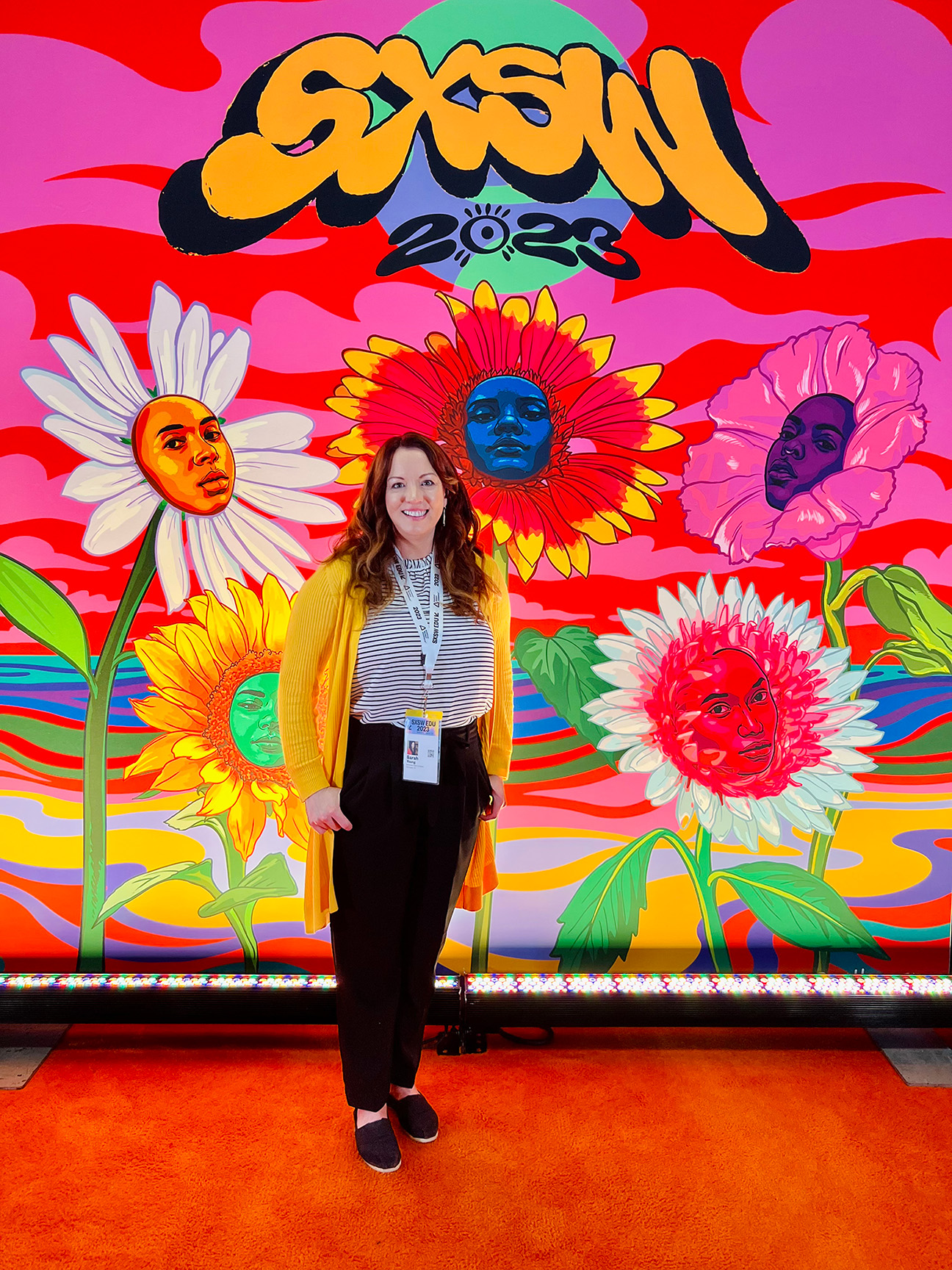Kennesaw State professor brings CARE Services to national light at SXSW EDU
KENNESAW, Ga. | March 24, 2023
Associate professor of public administration Sarah Young represented Campus Awareness, Resource & Empowerment (CARE) Services on a national stage recently, highlighting the organization during a presentation at SXSW EDU in Austin, Texas.

Young, who serves as director of research for CARE Services, discussed the challenges faced by foster youth and explained how CARE Services helps them overcome those hurdles during a talk titled ‘Solving Academic Inequity for Former Foster Youth.’
CARE Services offers several programs to help support students on campus who are affected by homelessness, foster care and food insecurity.
SXSW EDU is a four-day event that fosters innovation and learning within the education industry, joining together practitioners, entrepreneurs, and learners to address complex issues.
“It was a huge variation in terms of the audience, but the one uniting factor was that everybody who was there really cared about making big changes in our education system,” Young said. “It was really great to be around like-minded people.”
The conference allowed Young to meet with fellow educators, many of whom expressed an interest in adopting CARE Services systems.
“It’s interesting,because everywhere that I present about CARES, I get atleast one or two people that come up to me and say, ‘This is amazing, and I want to do this at my institution.’ So, CARES actually created the CARE RoadMap, which was developed by Marcy Stidum, the founder of CARES, that trains other institutions on how to implement a campus support program,” Young said. “I think we have made it very easy. We have created a system that works, and we provide all of the support necessary to launch a program like CARES.”
The CARE RoadMap breaks down the process into several different levels and provides access to tools, network, and ideas to improve programmatic efficacy and efficiency.
Trainees are instructed to first discover what to consider during initial stages of developing a program, then expand beyond the conceptual to developing a detailed programmatic strategic operating plan. From there, they must work together with their team and stakeholders to craft specific policies, then develop a high-school-to-higher-education pipeline for homeless and foster care students to create a successful transition experience.
Young attributes much of CARE Service’s success to the organization’s ability to consolidate services and remove any bureaucratic hurdles that can prevent students from receiving the assistance they need.
“What we’ve done at CARES is create a holistic wraparound,” Young said. “We situate all of those campus support programs that support student success in a one-stop-shop model. That makes it very easy for a student to go to just one place and fill out one application and talk to one person and get all the services they need. You’ve got one single point of contact that’s coordinating the care that that person needs.”
Click here to listen to Dr. Sarah Young's presentation, ‘Solving Academic Inequity for Former Foster Youth.’
Early returns suggest CARE Services is positively impacting students at Kennesaw State University.
According to Young, about 3 percent of students who experience foster care will graduate college. However, preliminary research indicates that KSU CARE Services students in the same demographic, have retention rates upwards of 70 percent.
While it can be a challenge to collect that information, the research component is pivotal to proving the organization’s effectiveness.
“The people that do this work, their primary focus is the student, as it should be,” Young said. “But having them understand how important the data is, and how important the collection process is, has been a challenge. You’re trying to work with practitioners who are bombarded every day with student needs, then asking them to do one more thing, which doesn’t seem all that important in the context of making sure a student has somewhere to sleep that night.”
CARE Services started at KSU in 2008 and operates walk-in, self-service pantries on both the Kennesaw and Marietta campuses, in addition to providing temporary housing, case management and other supportive services.
“You can’t focus on school if you’re hungry or if you don’t know where you’re going to lay your head that night,” Young said. “Universities have to be doing so much more than they have in the past in order to support these students to be in the brain space to learn.”
– By David Roberts
Photo submitted











